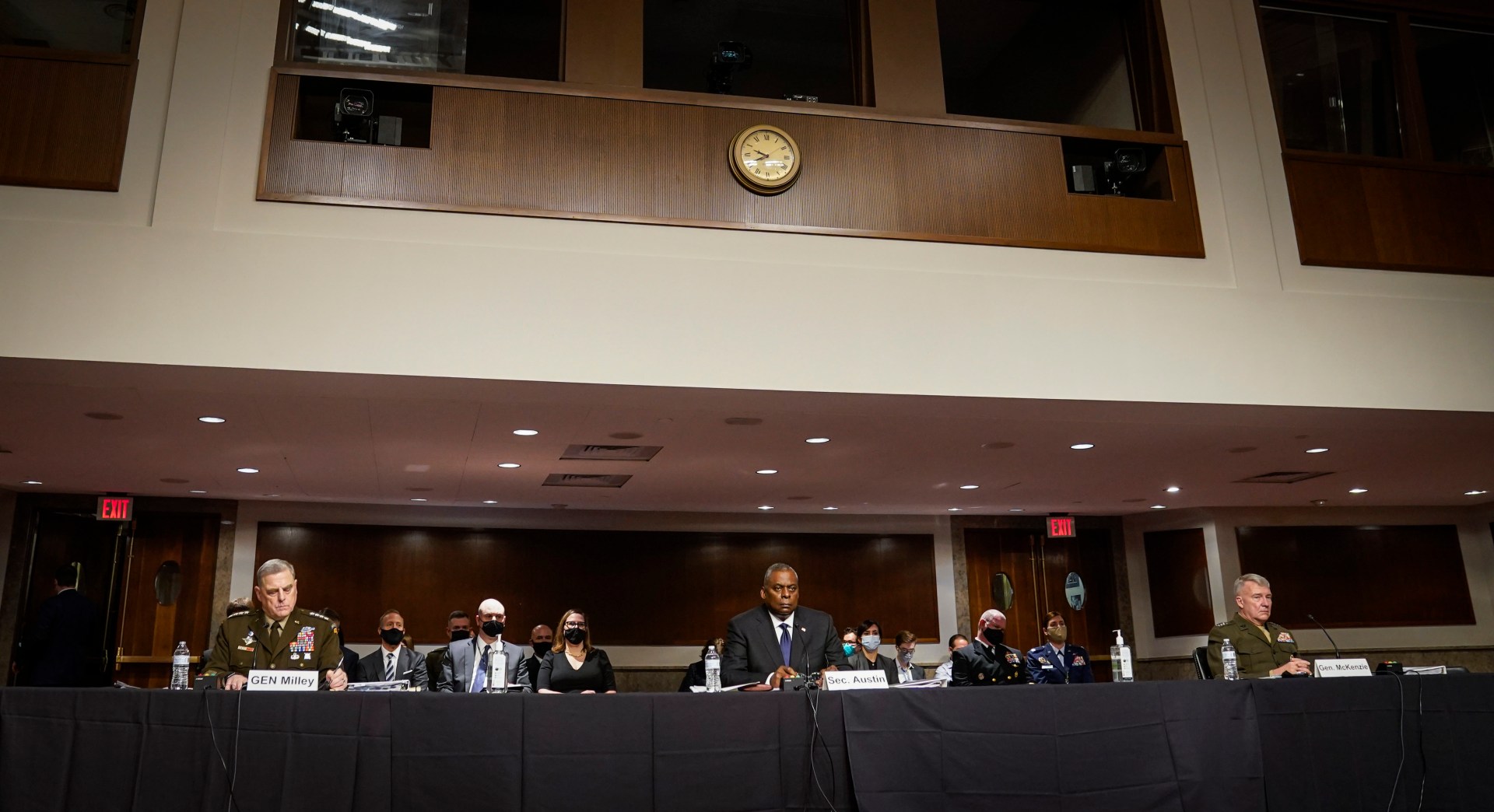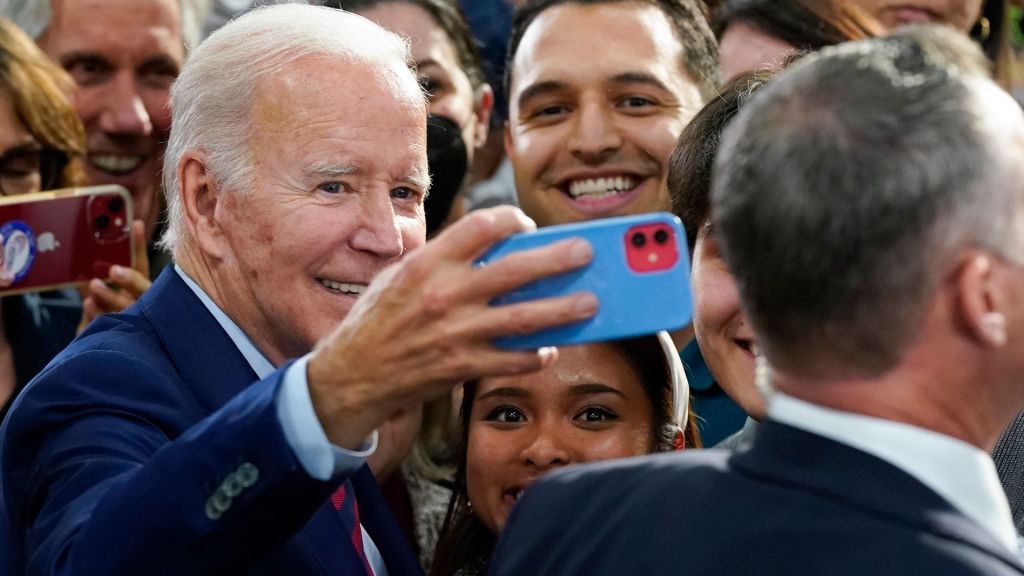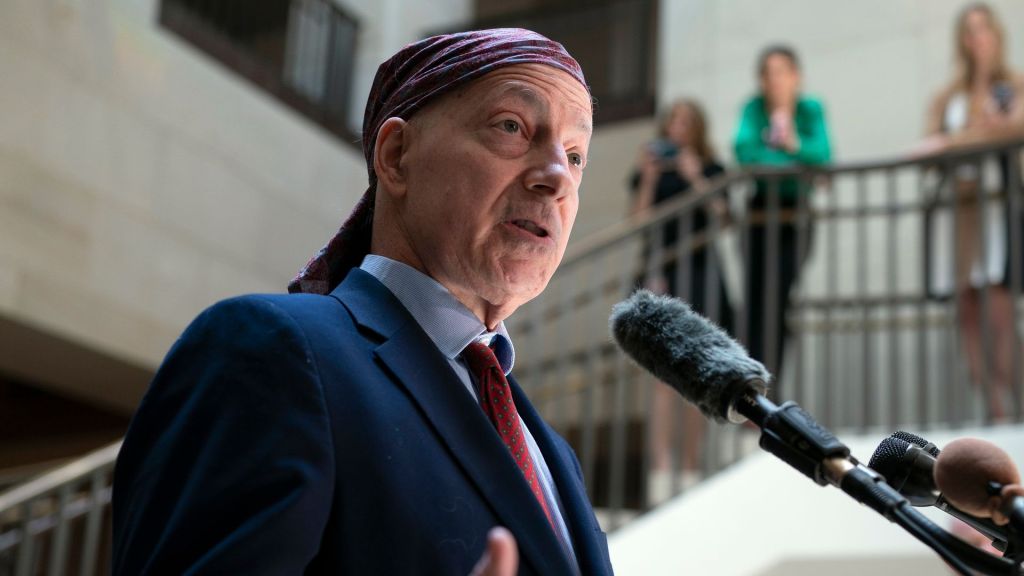
Gen. Mark Milley, Chairman Joint Chiefs of Staff: “I am specifically directed to communicate with the Chinese by Department of Defense guidance, the policy dialog system. These military-to-military communications at the highest level are critical to the security of the United States in order to deconflict military actions, manage crisis and present… prevent war between great powers that are armed with the world’s most deadliest weapons. The calls on 30 October and 8 January were coordinated before and after, with Secretary Esper and Acting Secretary Miller’s staffs and the interagency. The specific purpose of the October and January calls were to generate… were generated by concerning intelligence, which caused us to believe the Chinese were worried about an attack on them by the United States. I know, I am certain that President Trump did not intend to attack the Chinese, and it is my directed responsibility, and it was my directed responsibility by the secretary to convey that intent to the Chinese. My task at that time was to de-escalate. My message, again, was consistent: stay calm, steady and deescalate. We are not going to attack you.”
“Later that same day on 8 January, Speaker of the House Pelosi called me to inquire about the president’s ability to launch nuclear weapons. I sought to assure her that nuclear launch is governed by a very specific and deliberate process. She was concerned and made very or made various personal references characterizing the president. I explained to her that the president is the sole nuclear launch authority, and he doesn’t launch them alone and that I am not qualified to determine the mental health of the president of the United States. There are processes, protocols and procedures in place, and I repeatedly assured her that there is no chance of an illegal, unauthorized or accidental launch.”
“At no time was I attempting to change or influence the process, usurp authority or insert myself in the chain of command. But I am expected, I am required to give my advice and ensure that the president is fully informed on military matters.”
Sen. Jack Reed, Senate Armed Services Committee Chairman: “Our withdrawal this summer and the events surrounding it did not happen in a vacuum, the path that led to this moment was paved with years of mistakes from our catastrophic pivot to Iraq to our failure to handle Pakistan’s support for the Taliban, to the flawed Doha agreement signed by President Trump. The members of this committee and the witnesses before us have overseen chapters of a war that spanned four presidential administrations, both Democratic and Republican. And we owe the American people an honest accounting.”
Sen. Jim Inhofe, Senate Armed Services Committee Ranking Member: “The men and women who serve in uniform, their heroic families and the American people deserve answers. How did this avoidable disaster happen? Why were Americans left behind? President Biden’s decision to withdraw has expanded the threat of terrorism and increased the likelihood of an attack on the homeland.”
Lloyd Austin, U.S. Secretary of Defense: “As for ‘Over the Horizon Operations,’ when we use that term, we refer to assets and target analysis that come from outside the country in which the operation occurs. These are effective and fairly common operations. Indeed, just days ago, we conducted one such strike in Syria, eliminating a senior al-Qaida figure. ‘Over the Horizon Operations,’ are difficult, but absolutely possible. Any intelligence that supports them comes from a variety of sources and not just boots, just U.S. boots on the ground.”
“But let’s be clear, those first two days were difficult. We all watched with alarm the images of Afghans rushing the runway and our aircraft. We all remember the scenes of confusion outside the airport. But within 48 hours, our troops restored order and process began to take hold.”
“Did we have the right strategy? Did we have too many strategies? Did we put too much faith in our ability to build effective Afghan institutions, an army, an air force, a police force and government ministries? We helped build the state, Mr. Chairman, but we could not forge a nation. The fact that the Afghan army that we and our partners trained simply melted away in many cases without firing a shot took us all by surprise and it would be dishonest to claim otherwise.”
Gen. Mark Milley, chairman Joint Chiefs of Staff: “It remains to be seen whether or not the Taliban can consolidate power or if the country will further fracture into civil war, but we must continue to protect the United States of America and its people from terrorist attacks coming from Afghanistan. A reconstituted al-Qaida or ISIS with aspirations to attack the United States is a very real possibility. And those conditions to include activity in ungoverned spaces could present themselves in the next 12 to 36 months. That mission will be much harder now, but not impossible. And we will continue to protect the American people.”






